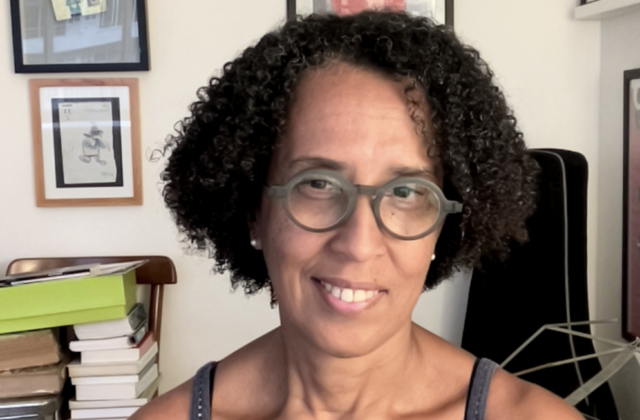Olívia Maria Gomes da Cunha
NIAS fellow

Project title
On the impossibility of forgetting: runaways and refugees in the sentient maroon landscapes
Research question
How can existential landscapes tell the painful stories of the war and its quotidian effects? How have Maroons been coping with the memories of violence against their relatives and earth spirits?
Project description
In her research Gomes da Cunha explores how the Cottica Ndyuka, who moved to Moengo, Suriname, from refugee camps, reshaped the places they and their ancestors created.
The civil war and other forms of violence, driven by mining, logging, and capitalist development policies, have threatened and damaged traditional territories since the early 20th century, leading to the destruction of land, forests, rivers, and villages.
From the Maroons’ perspective, these territories are sentient landscapes where their ancestors, who escaped colonial plantations, built new societies based on matrilineal ties and solidarity. In Maroon ontology, earth and forest beings, spirits, gods, and humans are interconnected. Encounters with these landscapes and beings, transformed the runaways into Businengee.
Gomes da Cunha researches how references to the ‘time of slavery’ provide the language and analogies to understand and discuss the war and ongoing violence against Maroon communities.
Selected publications
- Gomes da Cunha, Olivia Maria. Forthcoming. “Guianese Maroons in Amazonian Ethnological Landscapes” In High, Casey & Costa, Luiz, eds. Lowland South American World. London: Routledge.
- Gomes da Cunha, Olivia Maria. 2024.“The Earth is Sweet. On Cottica Ndyuka (de)compositions.” Comparative Studies in Society and History 66(2):1–25.
- Gomes da Cunha, Olivia Maria. 2021.“Clay and Earth: making balls and persons.” HAU: Journal of Ethnographic Theory 11(1): 174-190.